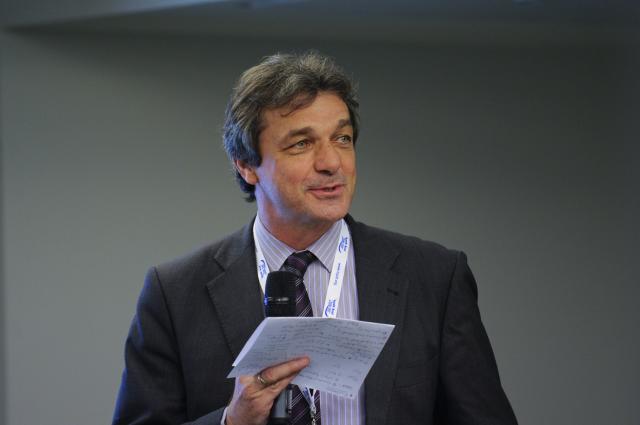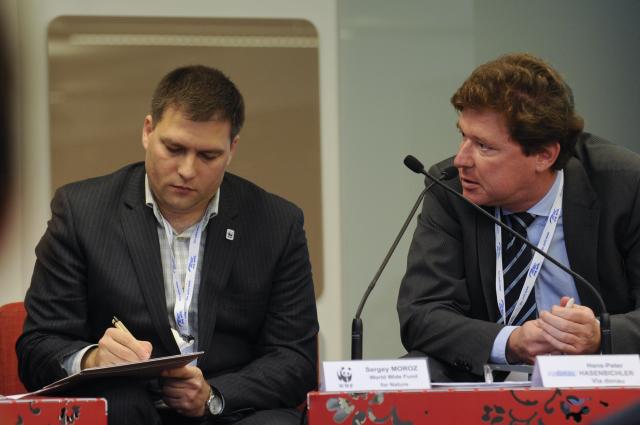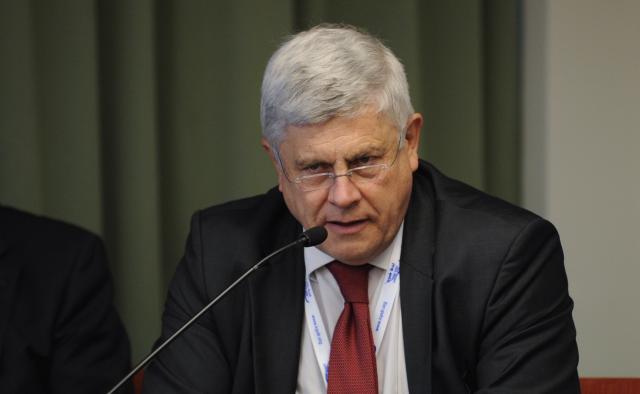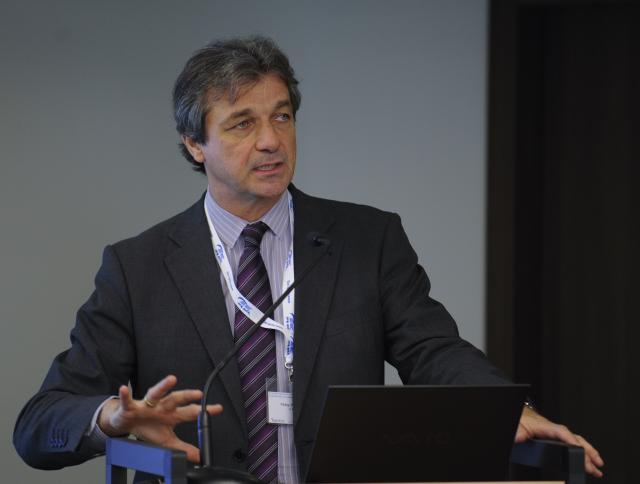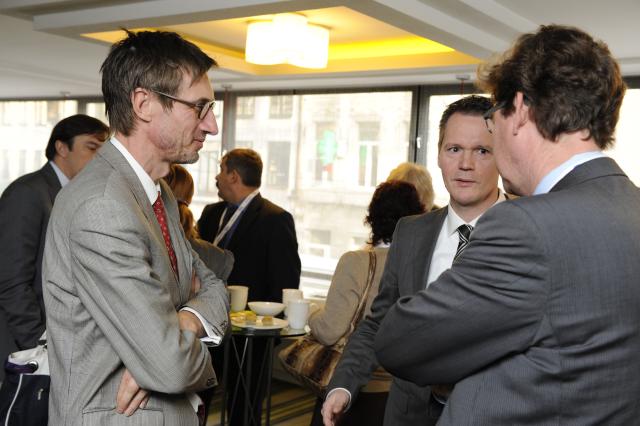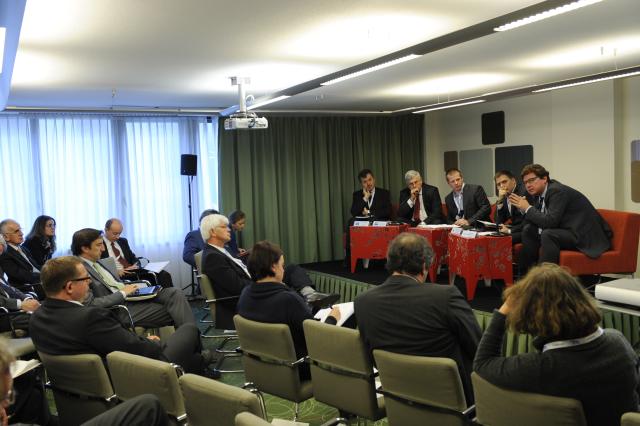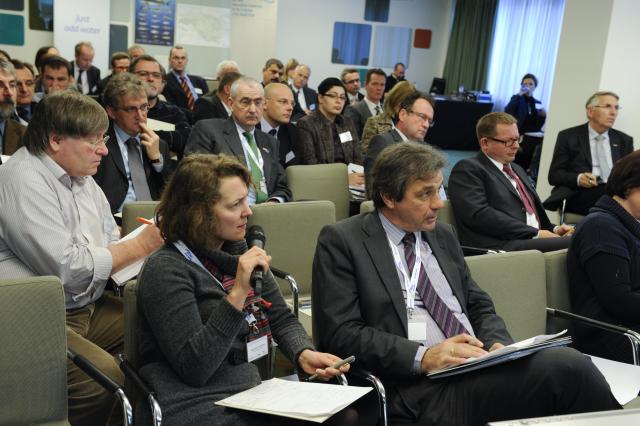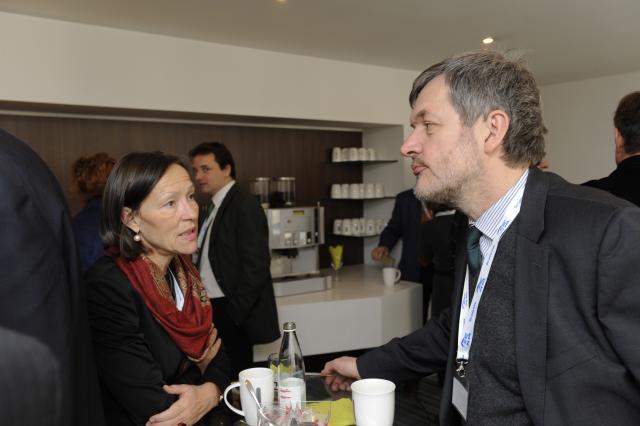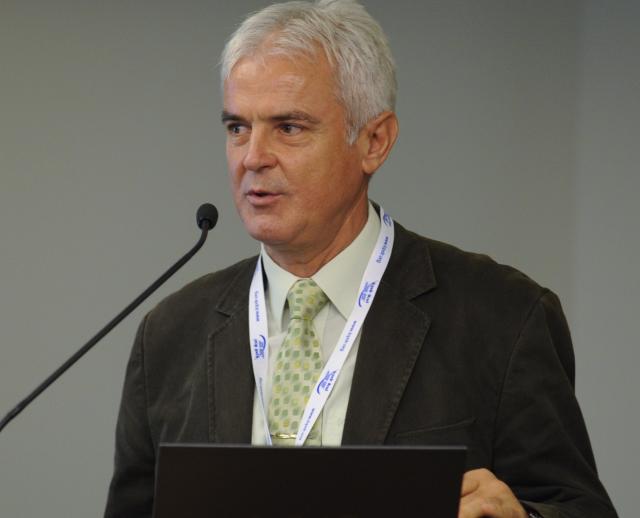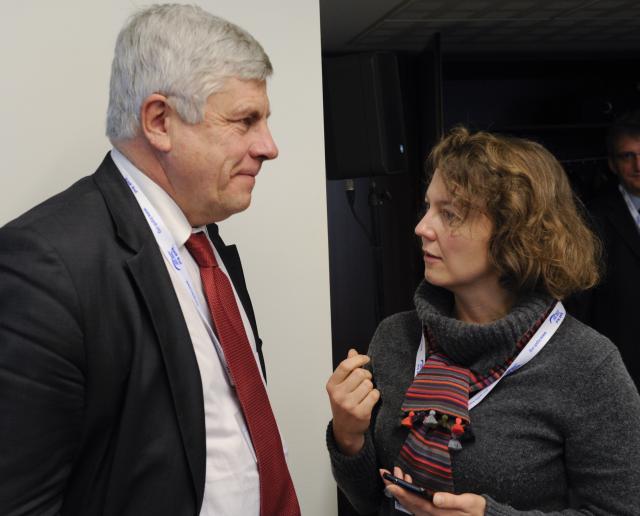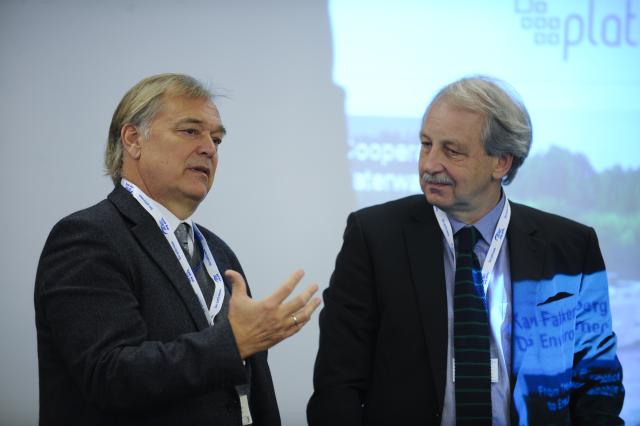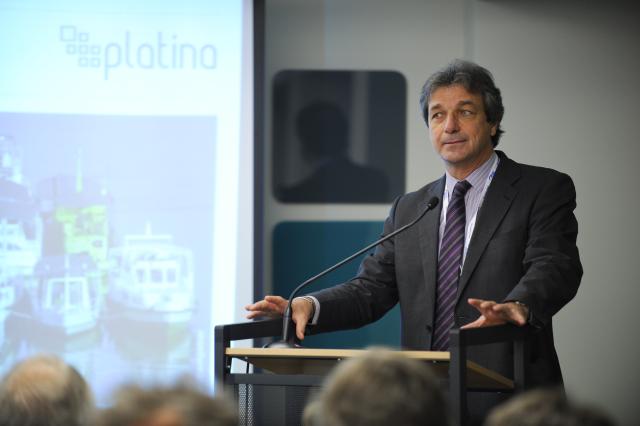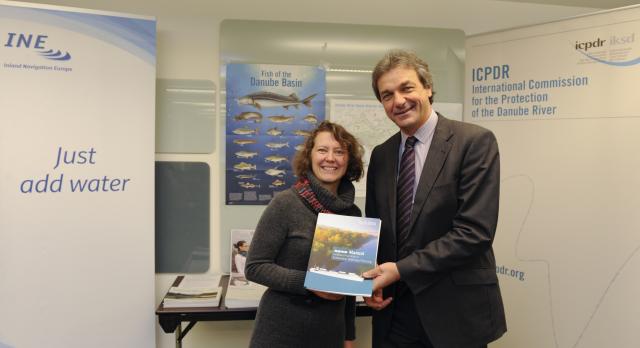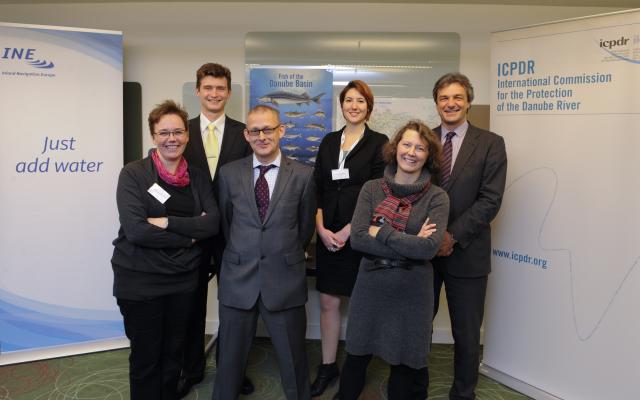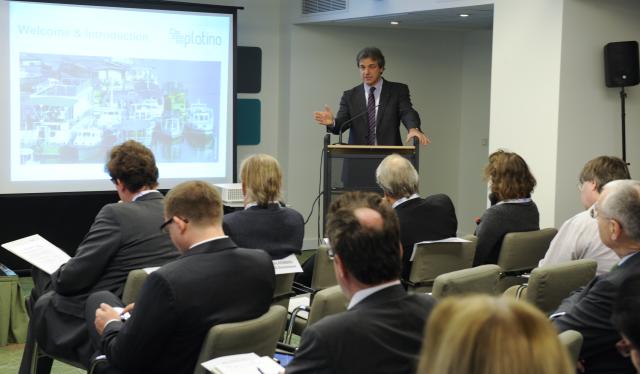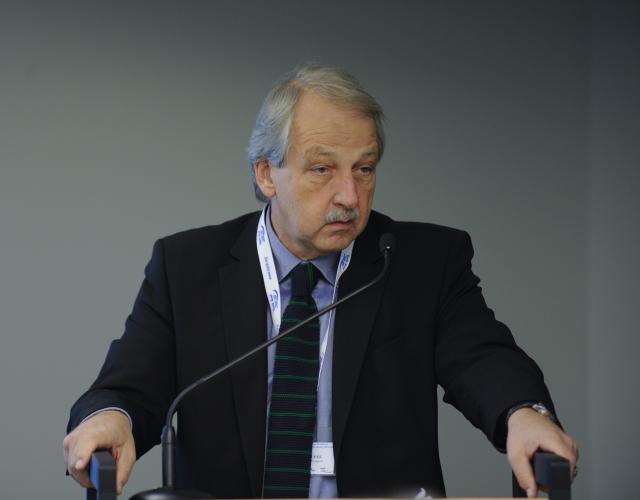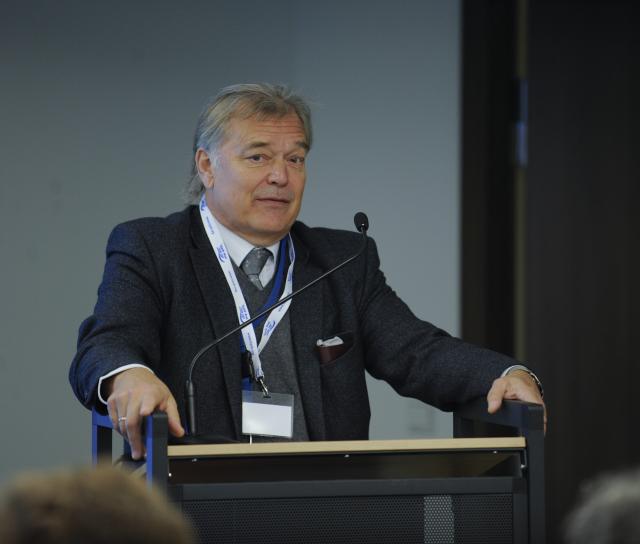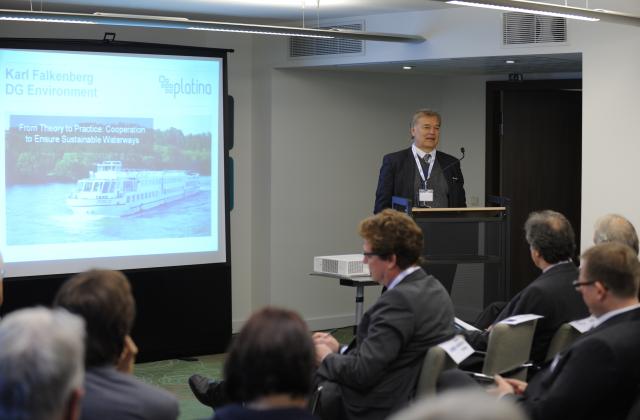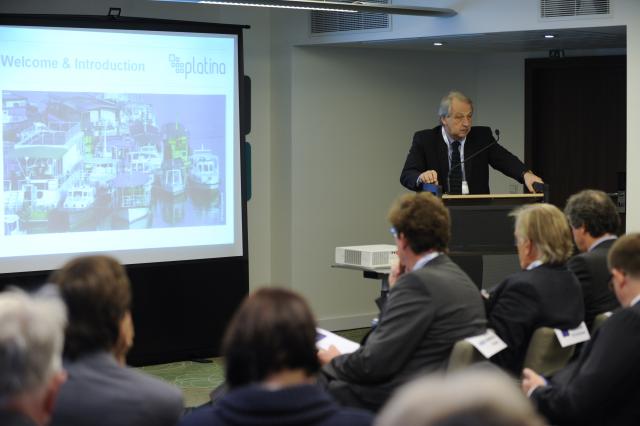Inland waterways comes together to address differences
Brussels, 15 November 2011. A groundbreaking conference in Brussels has seen two traditionally opposing waterways groups come together to discuss how to co-operate for the benefit of Europe’s rivers and canals.
On 15 November those from the inland waterways transport industry attended an interactive conference alongside conservation groups to discuss how they could work together to ensure that environmental considerations be built into inland waterway projects. The organisers were the International Commission for the Protection of the Danube River (ICPDR) and Inland Navigation Europe (INE), under the EU’s Platina project.
Two senior EU officials endorsed the coming together and addressed the conference.
Matthias Ruete, head of the European Commission’s directorate general for mobility and transport (DG Move), said that Europe’s inland waterways are becoming an increasingly important part of the EU’s transport network. Long term environmental sustainability and greater integration with other transport modes through closer co-operation will be essential.
Speaking alongside Ruete, EU environment head, Karl Falkenberg (DG Environment), said that the economy and the environment are equally important. He said that economic progress has to be achieved but only through sensitive development that gives full consideration to the environment at the earliest planning stages.
Head of INE, Karin De Schepper, said:
“This has probably been the first fully collaborative session that those with an interest in the waterways have been involved in. At times in the past the two sides have barely been on speaking terms, so the constructive views expressed today and willingness to listen were very refreshing. We really look forward to working together in future for the benefit of all those with an interest in Europe’s waterways.”
Philip Weller, ICPDR Executive Secretary, said:
“We have seen real progress today and we have learnt to talk to each other in a way that will yield results. We are developing a range of tools for use by all who have an interest in Europe’s waterways, particularly the recently published sustainable planning manual we elaborated in the EU Platina project.”
